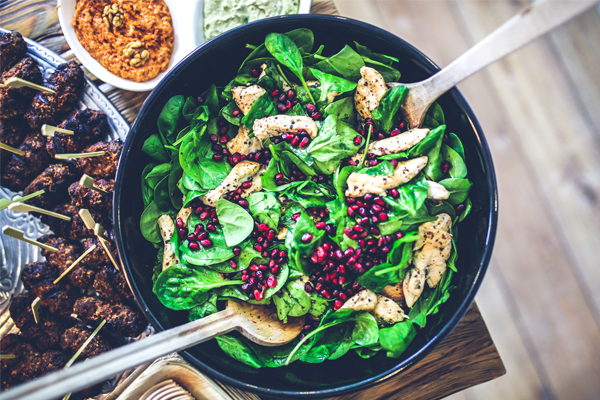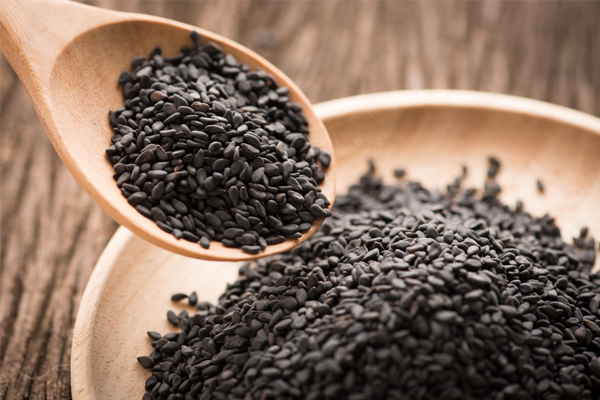Menopause is a natural transition in a woman’s life where a change in hormone levels can cause many symptoms. Hormones oestrogen and progesterone begin to decline which has a negative impact on our bodies. ‘Menopause’ is no longer one size fits all, we all feel differently and the 3 key stages of perimenopause, menopause and post menopause bring their own challenges.
On average women reach the menopause at age 51 but it can happen earlier or later. With the menopause comes a number of symptoms including hot flushes, night sweats, weight gain around the middle, sleep disturbances, decreased bone health and mood changes being the most common. If you are one of the few lucky ones, you may go through the menopause with very few symptoms.
I mentioned earlier that good nutrition is the foundation of good health. It would be very easy for me to recommend various supplements and products but really without a good basic diet, you would be wasting your time and money along the way.
I am a firm believer in “Back To Basics” nutrition, I like simple things in life. I look at all the foods available in our world today and there is so much good food to choose from, foods from every walk of life. But for me, I like simplicity, I have my favourites and I choose the foods that I know will improve my health and hopefully will keep me fit and well for many years to come.
I am always on the lookout for the next “superfood” and of course you will be the first to know through my blog! I like experimenting with new foods and I have increased my plant based foods a lot over the past few years, foods like tofu, avocados, almond milk, seeds and nuts, chickpeas, lentils, olive oil, sweet potatoes, quinoa, rolled oats to mention a few.
And just so you know, recipes are not my thing! What I do is pick out the foods I know will work, the foods I know will improve your menopause symptoms. I will also advise and update you on what foods to avoid, the foods that create havoc. I do not want to give you a list of foods that you cannot find in your local supermarket, what would be the point of that!
There is evidence that certain foods impact the way we feel. A whole-foods diet high in fruits, vegetables, whole grains, high-quality protein and dairy products often reduce menopause symptoms. Phytoestrogens and healthy fats, such as omega-3 fatty acids from fish, also help.
The following list of nutrient packed foods to make the transition easier is my basket of food, easily available and you can mix and match so many of these foods. Simplicity is key.

Whole Grains
These are high in nutrients and are an excellent source of heart-healthy fibre, plant protein and some B vitamins which are responsible for energy and metabolism regulation. Whole grain foods include brown rice, whole-wheat bread, whole barley, quinoa, whole oats, buckwheat, spelt, millet and rye.

Leafy Greens
Full of nutrients like calcium, magnesium, potassium, B vitamins and fibre. All of these nutrients are essential for health in menopause as calcium and potassium keep bones and muscles strong. B vitamins and fibre help prevent weight gain, and magnesium and B vitamins regulate our energy levels and moods. What’s not to like! Foods like kale, spinach, cabbage, beet greens, watercress, mustard greens, collard greens, romaine lettuce, swiss chard, and herbs.

Fruit and Vegetables
Packed with vitamins and minerals, fibre and antioxidants and shown to reduce hot flushes, women should fill up on these. Cruciferous vegetables such as broccoli and cauliflower may be helpful for postmenopausal women. A 2018 study of more than 400 women, published in the journal ‘Menopause’, found that those who ate the most fruit and vegetables experienced the fewest hot flushes and night sweats.

Healthy Fats
Omega-3 fatty acids are known to decrease the frequency of hot flushes and the severity of night sweats. Foods high in omega-3 fatty acids include oily fish, such as mackerel, salmon and anchovies and seeds like flaxseeds, chia seeds and hemp seeds, almonds, walnuts and tofu. Also, these foods are rich in Vitamin D which is so important during the menopause for healthy bones, cancer prevention and the prevention of several other major chronic conditions.

Quality Protein
The decline in oestrogen is linked to decreased muscle mass and bone strength. For this reason, women going through the menopause should eat more quality protein. Often called the building block, protein is a part of every cell in your body, it repairs tissues and makes hormones, enzymes, and other body chemicals. During menopause, protein becomes even more important in the diet for boosting your immune system, repairing and strengthening muscles, and keeping bones strong and healthy. Foods high in protein include eggs, meat, fish, legumes and dairy products. Some of the richest plant-based proteins include beans, tofu, nuts, seeds, quinoa, edamame, peas and lentils.

Lignans
This is a form of plant oestrogen, found in flaxseeds, wholegrains, legumes and sesame seeds. Lignans can help ease the effects of falling oestrogen levels by binding to oestrogen receptors in the body. You can add a tablespoon of milled flaxseed to your porridge or yoghurt. Plant-based foods have thousands of substances that are powerful, hormone supporting, anti-ageing and anti-cancer too.
The golden rule therefore is to eat well, a diet rich in vegetables, fruit, seeds, legumes and omega-3 healthy fats are known to support our bodies through menopause. Eat plant-based foods, avoid processed foods, increase fibre intake, reduce sugar and alcohol intake and exercise.
There is so much to cover in Nutrition and I have only touched on the subject. If you need more detailed advice I also give in-depth Nutritional Reviews. Look at it like a food MOT, totally tailored to you and your needs. This review will be based on what you eat, what you don’t eat, what supplements you take or should be taking, how you feel and if there are any menopause symptoms you need help with. It is really a way of checking to see if you are on the right track. For further details please email me on lynda@themenopauseboutique.com. This is in addition to our reviews, Q & As and is personal to you alone.
